Entrepreneurship in the Catholic
Tradition
STUDIES IN ETHICS AND ECONOMICS
Series Editor
Samuel Gregg, Acton Institute
Advisory Board
Michael Novak, American Enterprise Institute, United States
Edward Younkins, Wheeling Jesuit University, United States
Manfred Spieker, University of Osnabrck, Germany
Jean-Yves Naudet, University of Aix-Marseilles, France
Maximilian Torres, University of Navarre, Spain
Rodger Charles, S.J., University of Oxford, England
Leonard Liggio, George Mason University, United States
Economics as a discipline cannot be detached from a historical background that was, it is increasingly recognized, religious in nature. Adam Ferguson and Adam Smith drew on the work of sixteenth- and seventeenth-century Spanish theologians, who strove to understand the process of exchange and trade in order to better address the moral dilemmas they saw arising from the spread of commerce in the New World. After a long period in which economics became detached from theology and ethics, many economists and theologians now see the benefit of studying economic realities in their full cultural, often religious, context. This new series, Studies in Ethics and Economics, provides an international forum for exploring the difficult theological and economic questions that arise in the pursuit of this objective.
Titles in the Series
Intelligence as a Principle of Public Economy / Del pensiero come principio deconomia publica, by Carlo Cattaneo
And Why Not?: The Human Person at the Heart of Business, by Franois Michelin
Faith and Liberty: The Economic Thought of the Late Scholastics, by Alejandro A. Chafuen
The Boundaries of Technique: Ordering Positive and Normative Concerns in Economic Research, by Andrew Yuengert
Within the Market Strife: American Economic Thought from Rerum Novarum to Vatican II, by Kevin E. Schmiesing
Natural Law: The Foundation of an Orderly Economic System, by Alberto M. Piedra
The Church and the Market: A Catholic Defense of the Free Economy, by Thomas E. Woods Jr.
The Constitution under Social Justice, by Antonio Rosmini, translated by Alberto Mingardi
Entrepreneurship in the Catholic Tradition, by Anthony G. Percy
Entrepreneurship in the Catholic
Tradition
Anthony G. Percy

Published by Lexington Books
A division of Rowman & Littlefield Publishers, Inc.
A wholly owned subsidiary of The Rowman & Littlefield Publishing Group, Inc.
4501 Forbes Boulevard, Suite 200, Lanham, Maryland 20706
http://www.lexingtonbooks.com
Estover Road, Plymouth PL6 7PY, United Kingdom
Copyright 2010 by Lexington Books
All rights reserved. No part of this book may be reproduced in any form or by any electronic or mechanical means, including information storage and retrieval systems, without written permission from the publisher, except by a reviewer who may quote passages in a review.
British Library Cataloguing in Publication Information Available
Library of Congress Cataloging-in-Publication Data
Percy, Anthony.
Entrepreneurship in the Catholic tradition / Anthony G. Percy.
p. cm. (Studies in ethics and economics)
Includes bibliographical references (p. ) and index.
ISBN: 978-0-7391-2513-7
1. Entrepreneurship. 2. BusinessReligious aspectsCatholic Church. I. Title.
HF5388.P47 2010
261.8'5dc22
2010015815
 The paper used in this publication meets the minimum requirements of American National Standard for Information SciencesPermanence of Paper for Printed Library Materials, ANSI/NISO Z39.48-1992.
The paper used in this publication meets the minimum requirements of American National Standard for Information SciencesPermanence of Paper for Printed Library Materials, ANSI/NISO Z39.48-1992.
Printed in the United States of America
CONTENTS
ACKNOWLEDGMENTS
I would principally like to thank Samuel Gregg of the Acton Institute for his editorial work and for helping to bring this text to publication. It would not have occurred without him. I also wish to thank the scholars, especially Professor William E. May, at the John Paul II Institute for Studies on Marriage and the Family, Washington, D.C., who supervised this work when it was a doctoral thesis. Thanks are also owed to my ecclesiastical authorities in Australia for permission to undertake the doctorate. Finally, I want to thank my parents and family who have done so much to form my mind and heart as a man, priest, and seeker of the truth.
Permission to cite from the following documents has been granted by Libreria Editrice Vaticana, which retains full copyright . Leo XIII, Rerum Novarum (1891); Pius XI, Quadragesimo Anno (1931); Pius XII, Function of Bankers (1951); Pius XII, Christmas Address (1952); Pius XII, Christmas Address (1955); Pius XII, Business and the Common Good (1956); Pius XII, The Small Business Manger (1956); Pius XII, Small Business in Todays Economy (1957); John XXIII, Mater et Magistra (1961); Second Vatican Council, Lumen Gentium (1964); Second Vatican Council, Dei Verbum (1965); Second Vatican Council, Gaudium et Spes (1965); Paul VI, Populorum Progressio (1967); John Paul II, Redemptor Hominis (1979); John Paul II, Laborem Exercens (1981); John Paul II, Sollicitudo Rei Socialis (1987); John Paul II, Centesimus Annus (1991).
FOREWORD
At the beginning of the twenty-first century, the figure of the entrepreneur looms perhaps larger than in the nineteenth century and even larger than the period when capitalism first emerged: the Middle Ages. Few would claim, however, that there is enhanced understanding of entrepreneurships significance in the modern economy. The word entrepreneur is often used, for instance, interchangeably with that of business executive or manager. As economic thinkers such as Israel Kirzner to Ludwig von Mises have illustrated, entrepreneurship is something quite distinct, with specific characteristics. It plays a crucial economic role very different from that of a manager or executiveeven those with immense responsibilities.
But reflection on the nature and purpose of entrepreneurship is most decidedly not new. Though the word is of relatively modern lineage, humans have beenby necessity and by natureentrepreneurial from the very beginning. Unlike all other creatures, humans have shaped the world around them in new and innovative ways. Man, it seems, cannot help but change the material context in which he finds himselffor better or worse. At the source of the ability of humans to do so is the human reason and free will with which all have been endowed.
Consideration of the role of human reason inevitably and eventually raises theological questions, and it is little wonder that some of the first and most profound reflections upon entrepreneurship have come from within Roman Catholicism. Yet relatively few scholars have looked carefully at the history of Catholic analysis of entrepreneurship. Since the time of Joseph Schumpeters magisterial History of Economic Analysis, there has been wider acknowledgmentgrudgingly, one may sayof the crucial, indeed indispensible role played by Catholic theologians in intellectually facilitating the rise of capitalism. Careful attention, however, to this research indicates that Catholic thinking about entrepreneurship per se has been neglected.
This book by Anthony Percy does a great deal to diminish this gap in contemporary knowledge. Percy draws upon his own deep theological and economic knowledge to demonstrate that there
Next page



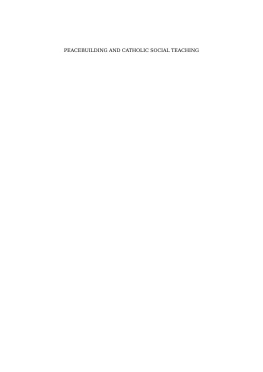


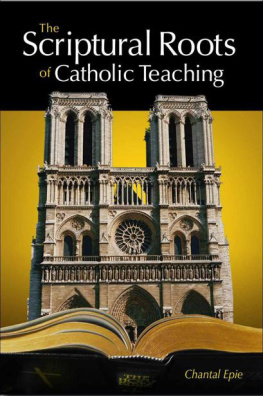

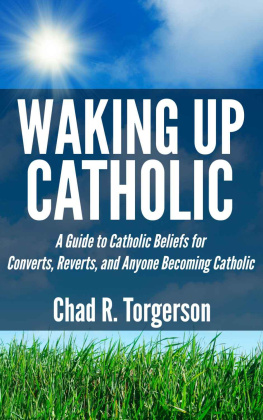

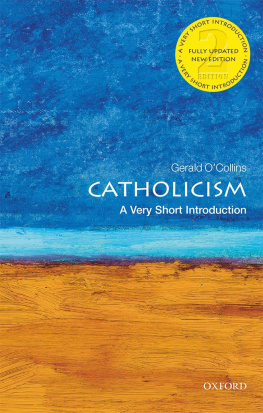
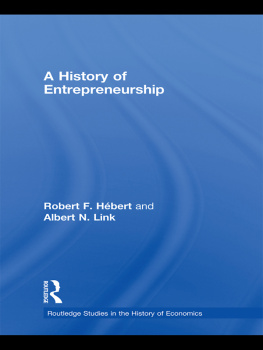

 The paper used in this publication meets the minimum requirements of American National Standard for Information SciencesPermanence of Paper for Printed Library Materials, ANSI/NISO Z39.48-1992.
The paper used in this publication meets the minimum requirements of American National Standard for Information SciencesPermanence of Paper for Printed Library Materials, ANSI/NISO Z39.48-1992.